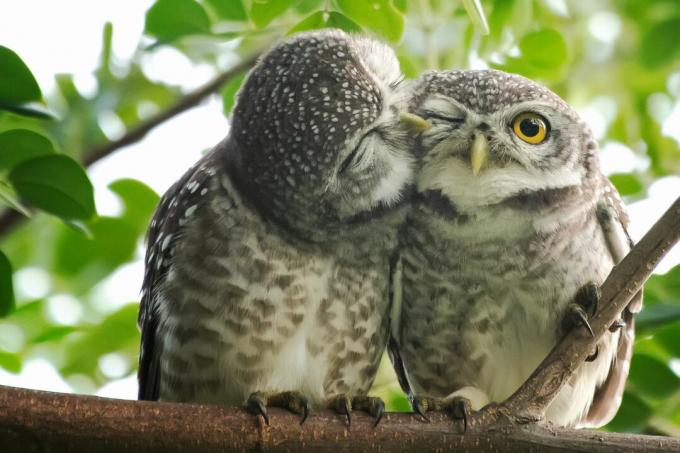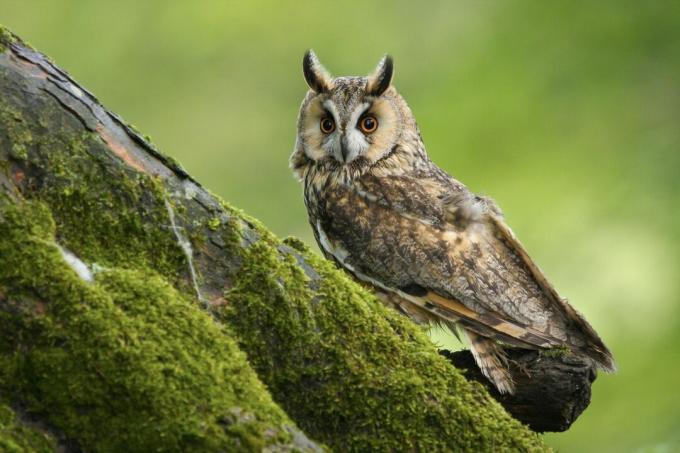Your ability to fly is undisputed, but what about the sensory organs of birds? Can birds smell? Do birds have ears? And how do birds see?

The art of flying puts birds on a special pedestal in terms of physical abilities. Only a few representatives from other animal groups share this gift. Songbirds also have lovely bird calls and illuminate their surroundings with their bright colors. So what other talents can they be given? Can birds smell? How well can you hear and how do you perceive the world around you? We would like to answer these exciting questions in our information article.
contents
- Can birds smell?
- Can birds hear?
- Can birds see colors?
Can birds smell?
In fact, birds rarely have a strong sense of smell. Birds can smell, but usually not very well. The sense of smell is used, for example, when looking for a partner, recognizing prey and enemies or for Orientation is used, but in all of these areas it only plays one role besides seeing and hearing subordinate role. An exception are vultures, which in search of carrion - their favorite food - make their way through the Let smell guide, which is more pronounced in them than in most others Bird species.

Can birds hear?
At the beautiful concerts that songbirds give in the morning, it would be a shame if they couldn't hear them for themselves. And that's why the answer also applies here: Yes, birds can hear. The bird calls are not there to our delight, but are intended to send specific signals to conspecifics or to other bird species. Male birds, for example, mark out a territory with their splendid singing and woo a partner in it.
Note: For more information on bird song and the use of other bird sounds, see our special article on the subject "Why do birds chirp?".
On the other hand, it is a little more difficult to understand how Birds hear because, unlike humans, dogs, and many other animals, they have no obvious, protruding ears. Not even the long-eared owl, whose appearance has earned it the English name "long-eared owl", does it is easy for us, because the protruding tufts of feathers on her head are purely decorative and not for hearing suitable.

Therefore, to prove that birds have ears, you have to look very carefully. These are located on the head of the animals and only consist of small openings, the mostly surrounded by a tuft of feathers and hardly recognizable without a close examination of the animal are.
Can birds see colors?
The sense of sight is probably the most important sense of the birds, because this ability is essential for orientation during the flight, for searching for food or for finding a partner. Birds of prey, such as Kestrel or Common buzzards, can see small prey, such as field mice, flitting through the field even at a distance of several hundred meters, which is difficult for a person even with binoculars.
And birds also have a lot ahead of us when it comes to color vision, because in addition to the classic color receptors for red, blue and green, like as humans have them, birds have another receptor for violet with which they can even perceive UV light can. This means that the world seems even more colorful to birds than it does to us. In addition to the four color receptors, birds also have another receptor that is specifically designed for them Perception of movement helps, making them react quickly to danger or moving prey can.

Birds can smell, hear and even see colors - but when do these senses come to rest? Where birds sleep and how to protect yourself from danger and the cold of winter, you can find out in our special article.



